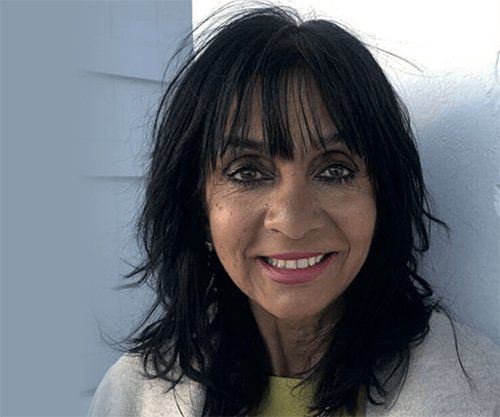Purpose, Belonging and Connection

Meena Wood is an educator and author of ‘Secondary Curriculum Transformed: Enabling All to Achieve’. Meena was a former Adult College Principal, DfE Senior Education Adviser, HMI Ofsted and Principal of a Secondary Academy, an International Educational Consultant, Trainer and a DfE Academies Ambassador.
Leonardo da Vinci celebrated as an artist, scientist and an inventor is the epitome of the ‘Renaissance’ man. He was a multi-dimensional, talented individual who had deep rooted purpose, and made inspirational, creative connections between the arts, humanities and sciences . The knowledge he acquired was rooted in real world application and belonged to society then, as now.
Reflecting on the values and purpose of Curriculum is at the heart of educational practice. Education must enable young people to acquire powerful knowledge, plus gain the skills they need to apply that knowledge in a fast-changing world.
How many education systems truly embrace the connectivity between knowledge and skills and the real world and confer a sense of purpose and belonging for young people, so they see themselves as global citizens?
Education systems from countries as diverse as Singapore, Finland and Estonia, have created a pathways curriculum around knowledge and skills with this aim in mind. By so doing, there is a commitment to social levelling, plus a recognition that all skills and knowledge are pathways to employment, holistic and life-long learning.
The Estonians’ aim is for students to be ‘creative, multi-talented, socially mature and reliable citizens.’ Vocational education fosters skills, attitudes, occupational know-how, social readiness for working, and lifelong learning. Therefore, collaborative working through connections exist between schools and companies in curriculum development and apprenticeships. Young people move from vocational
education to higher education and vice versa, if they wish to change direction later in life. The Finnish curriculum too has purpose and connections through the popular ‘ Yritsklyla entrepreneurial village’. Through ‘Applied Learning’ children gain authentic hands-on experiences as knowledge and skills are applied in real-world contexts. The Singaporean curriculum strapline from primary to post- secondary is “Thinking Schools, Learning Nation” with ‘21st Century Competencies and values to nurture lifelong learners’. ‘EIGHT CORE SKILLS AND VALUES’ comprise Character
Development, Self- Management, Cooperative Skills, Literacy, Numeracy, Communication Skills, Information Skills, Creative Skills and Knowledge Application Skills.
A stand out feature in all three education systems is a curriculum underpinned by where students, staff, families and all stakeholders have a common grounded understanding of how the school’s vision and values permeate pedagogies, assessment and outcomes. Truly an UBUNTU learning community sharing ‘belonging’!
Relevance and choice in learning help develop intrinsic motivation as students gain a greater sense of ownership and purpose. Relevance creates the ‘eureka/lightbulb moment’ whereby learning becomes memorable! Cross-curricular approaches are brilliant precisely because they connect students with their learning.
So, is a trans-disciplinary, integrated timetable the way forward? The Finnish ‘phenomenal’, multi-disciplinary curriculum includes multi-literacy, entrepreneurship, collaborative and creative thinking. Interestingly, creativity is now recognized by the OECD as an invaluable skill through PISA. ‘Phenomenal learning’ translates into self-directed / enquiry- based learning as students have structured opportunities for examining global and local challenges from a wider perspective. This is powerful because students are helped to understand the bigger picture, for instance through the combined lens of a geographer, a historian, scientist and an economist. Their sustainability project may cover attitudes towards global climate change, since the Industrial Revolution, examining the science of climate change, links to life styles and fast-forwarding to future lifestyles.
Renaissance education has holistic ‘life-long’ learning at its heart. Technology during ‘Covid lockdowns’ created a catalyst for ‘limitless learning,’ anytime, anyplace, anywhere curriculum with opportunities for personalising learning and e-learning projects out of school.
Now would Da Vinci judge these 21st Century education systems as capable of producing the Renaissance Man or Woman who successfully embraces the national and global challenges we now face?
First published in Engage 23.




